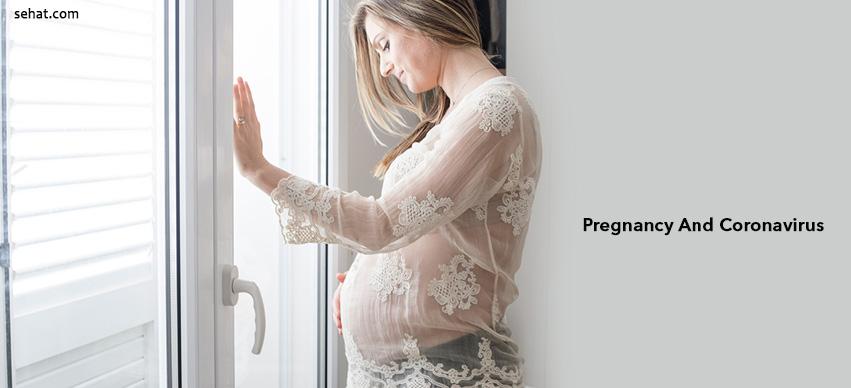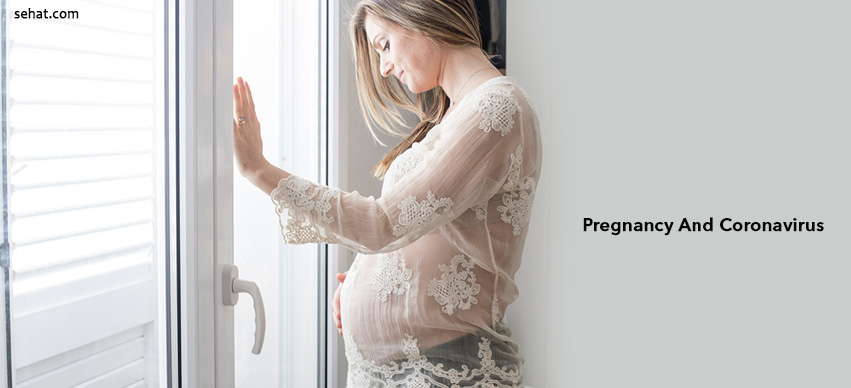
The novel coronavirus is caused by severe acute respiratory syndrome coronavirus-2(SARS-CoV-2). This virus has infected over a million people worldwide and has claimed several lives too.
When the coronavirus infection commenced, healthcare agencies of the world such as the Centers for Disease Control and Prevention (CDC) and the World Health Organization (WHO) mentioned specific patient groups that were at a higher risk of getting infected with COVID-19; this included;
- Children and old patients (above the age of 65 years)
- Persons with pre-existing illnesses or comorbidities such as hypertension, cardiac disorders, auto-immune diseases, and diabetes mellitus
- Persons with respiratory illnesses like Chronic Obstructive Pulmonary Disease (COPD), Bronchial asthma
- immune-compromised individuals
- Pregnant women
This article will help you know more about the correlation between pregnancy and COVID-19, effects of coronavirus on pregnancy, effects of COVID-19 on the baby if the mother is affected and ways to prevent COVID-19 infection.
Pregnancy And COVID-19
Primarily, pregnant women need to know the basics about coronavirus including its signs and symptoms, its spread, and how it can be prevented. The only difference being, that pregnant women fall under the high-risk group of individuals which means that they are at a slightly higher risk of being infected with COVID-19 as compared to the general public. Some information that pregnant women need to know about coronavirus is, Signs and symptoms of coronavirus infection usually take about 2-14 days to appear.
Signs And Symptoms Of Coronavirus
- Fever
- Runny nose
- Sore throat
- Headache
- Cough and shortness of breath
- Temporary loss of smell and sense of hearing
[Also Read: Loss of smell a symptom of coronavirus]
Mode Of Transmission
- Only human to human transmissions have been confirmed to date.
- The virus spreads through droplets, that is when an infected person coughs or sneezes
- The infection can also spread by touching contaminated surfaces like tables, chairs and door handles
- The risk of infection increases by close contact with an infected person or the infected person's secretions or body fluids
- Among pregnant women, the infection may spread to the fetus trans-placentally.
What Effect Does Coronavirus Have On Pregnant Women?
It is a well-known fact that pregnant women are highly susceptible to viral infections. This is because pregnancy tends to alter the body's immune system slightly, so the signs and symptoms may be more severe as compared to other individuals.
Individual responses to viral illnesses also tend to be different in different women. This is applicable for coronavirus too as some pregnant females might experience moderate to severe intensity symptoms, while some may experience mild symptoms or may even remain completely asymptomatic.
Critical illness or severe symptoms can generally be seen during a later pregnancy or the third trimester or after delivery. Therefore, even the slightest signs and symptoms suggestive of coronavirus during pregnancy must not be ignored and should be reported to the doctor immediately.
What Are The Effects On The Baby If The Mother Is Diagnosed With COVID-19?
There is no documented evidence of early miscarriage or fetal malformations due to coronavirus infection during pregnancy. Coronavirus could not be isolated from amniotic fluid, breast milk, placenta, or nasal secretions of babies which suggests its possible effects on newborn babies.
The risk of passing on the coronavirus trans-placentally is quite low. Yet, babies are very likely to get infected by close contact with a COVID-19 positive mother or other COVID-19 positive individuals because their immune system is not as well developed as that of a relatively normal healthy adult.
Some studies have found the following as effects of COVID-19 infection on newborn children;
- A small study that included 38 infected pregnant women showed that none of the newborns were tested positive for COVID-19.
- Two case reports were documented where blood samples of infants showed elevated levels of antibodies in the absence of clinically evident signs and symptoms of COVID-19.
- A study that included 9 pregnant COVID-19 positive women who underwent normal deliveries showed that none of the children born were affected by COVID-19. The virus could not be isolated from samples of amniotic fluid, breast milk, or the babies’ nose and throat swabs.
Tips To Reduce The Risk Of Coronavirus
Pregnant women can follow certain basic measures to reduce the risk of coronavirus infection such as;
- First and foremost is to stay at home, especially if you are unwell.
- While sneezing or coughing, use tissue paper or a handkerchief to cover your mouth and nose. You can wash the handkerchief or throw away the tissue paper in a properly closed bin.
- Avoid close contact with persons who have had a recent travel history to a COVID-19 endemic place or are suspected to have COVID-19 infection.
- Avoid using public transport to go out. Also, avoid crowded places.
- When you go out, avoid touching common surfaces such as door handles and furniture as they may be potentially contaminated.
- Practice social distancing. Stay at least 2 meters away from people especially when you go out of the house.
- Use basic protective gear like gloves, eyeglasses and a mask to cover the nose and mouth.
- Also avoid touching your face, eyes, nose, or mouth with unclean hands.
- Use a hand sanitizer at all times especially when soap and water are unavailable.
- Wash your hands frequently with soap and water as it is the best means to avoid infection.
- You can use a sanitizer spray or a disinfectant to clean commonly touched surfaces of the house such as doors, door handles, tables, chairs, switchboards, and so on. You can clean the house by following the above-mentioned methods at least 1-2 times a week to avoid contamination of surfaces.
- As an additional tip for all those pregnant women reading this article, it is very important to maintain regular antenatal care (ANC) visits even during this pandemic. You need to communicate with your doctor about your ANC visits.
- As an essential part of the ANC visits, pregnant women must disclose if they have experienced any unusual signs and symptoms pointing to a possible coronavirus infection or if they have come in contact with a coronavirus positive person. These pointers help your doctor to channel your treatment in a better way to avoid unwanted consequences.

